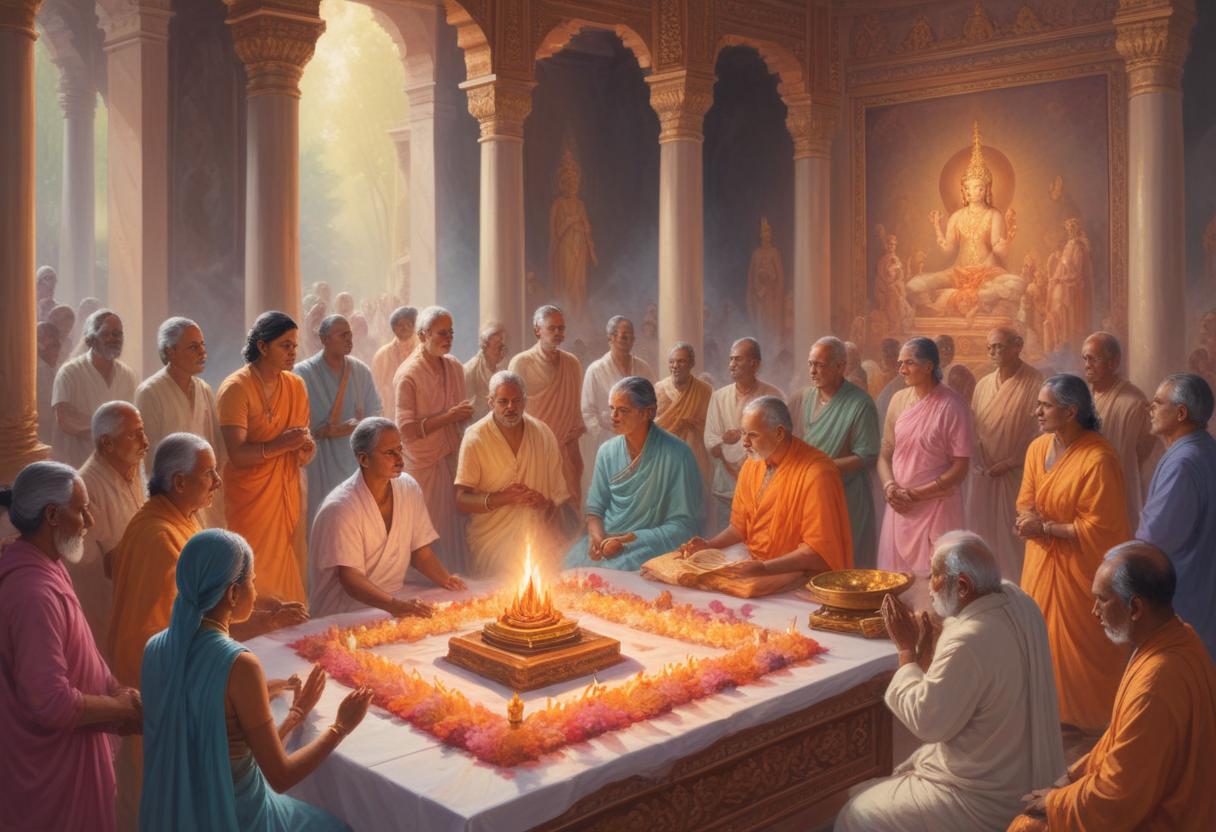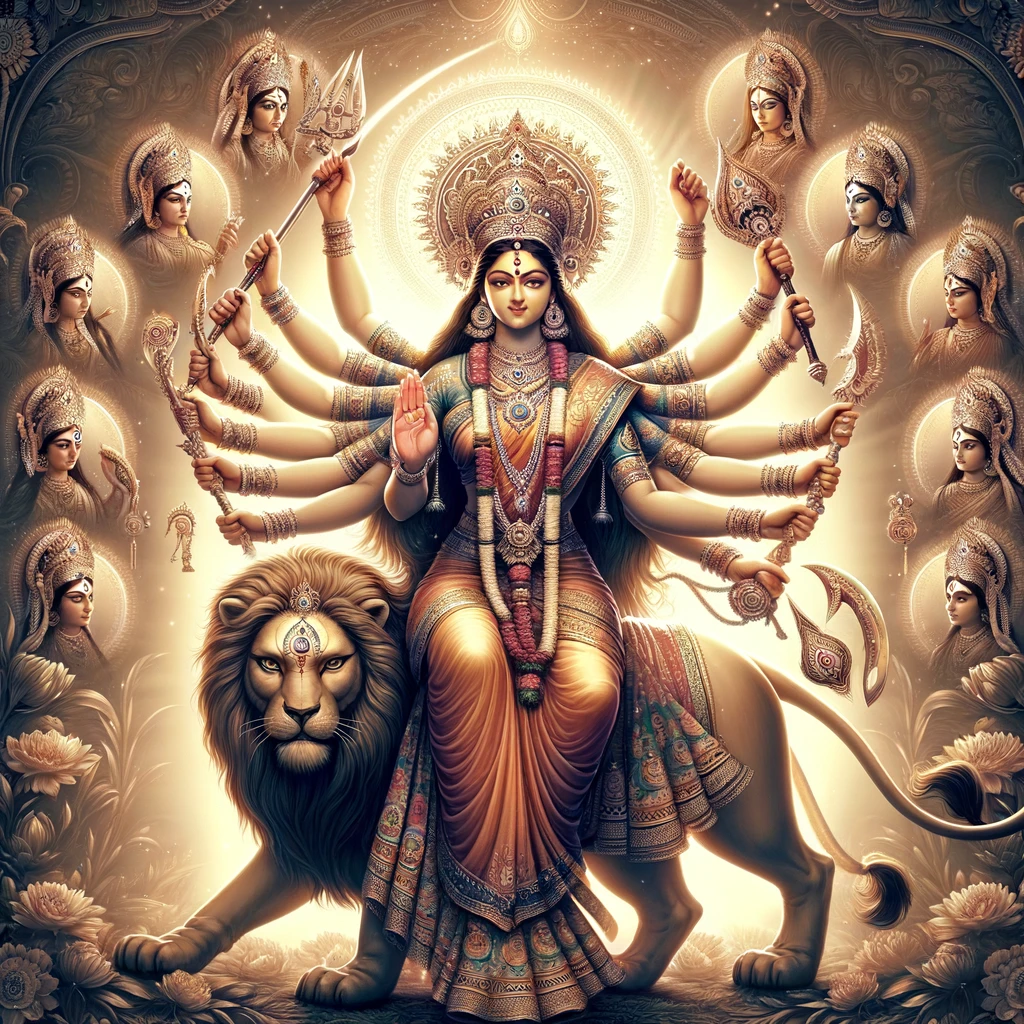
Putrada Ekadashi, also known as Putrada Ekadashi Vrat, is a significant fasting day observed in Hinduism. This sacred day falls on the 11th day of the Shukla Paksha (waxing phase of the moon) during the Shravana month (July-August) according to the Hindu calendar. In 2024, Putrada Ekadashi will be observed on August 16. It is considered a highly auspicious day, especially for those desiring to have children, and it is believed to fulfill the wishes of devotees seeking progeny.
Significance of Putrada Ekadashi
Putrada Ekadashi is dedicated to Lord Vishnu, who is worshipped on this day. The name ‘Putrada’ translates to ‘one who grants sons’, indicating the primary significance of this Ekadashi. The legend associated with this day highlights its importance for couples seeking to be blessed with children. According to Hindu beliefs, observing the fast and performing the rituals on Putrada Ekadashi can help in overcoming difficulties related to progeny and ensure a blessed lineage.
This Ekadashi is observed with devotion and reverence, and its significance is deeply rooted in the ancient scriptures. It is believed that fasting on this day and performing the prescribed rituals can help in gaining the blessings of Lord Vishnu, thereby ensuring happiness, prosperity, and the fulfillment of one’s desires.
Importance of Shravana Month
The Shravana month holds immense importance in Hindu tradition. It is regarded as a highly sacred period, especially for Lord Shiva and Lord Vishnu. The month is marked by various religious observances, including the famous Sawan (Shravan) fasts dedicated to Lord Shiva and numerous other auspicious days.
During Shravana, devotees engage in various rituals and prayers, and the entire month is considered propitious for spiritual growth and divine blessings. The energy of this month is believed to be highly conducive for spiritual activities and religious observances, making it an ideal time for undertaking vows and performing pujas.
Benefits of Observing Putrada Ekadashi
Observing Putrada Ekadashi is believed to offer numerous benefits:
- Blessings of Progeny: The primary benefit of observing this Ekadashi is the blessing of children. Couples who have not been able to conceive are particularly encouraged to observe this fast, as it is believed to fulfill their wishes for progeny.
- Spiritual Upliftment: Like other Ekadashis, Putrada Ekadashi helps in purifying the mind and soul. It provides an opportunity for devotees to engage in spiritual practices and strengthen their connection with the divine.
- Overcoming Obstacles: Fasting and observing the rituals on this day are believed to help in overcoming various obstacles in life. The blessings of Lord Vishnu are said to remove hurdles and bring prosperity and happiness.
- Merit and Karma: Observing Putrada Ekadashi is also believed to generate significant spiritual merit and positive karma. This can lead to a better future and improved spiritual growth.
Puja Vidhi (Rituals and Worship Procedure)
Observing Putrada Ekadashi involves specific rituals and practices. Here’s a step-by-step guide to the Puja Vidhi:
- Preparation: On the day before Putrada Ekadashi, devotees should take a ritual bath and prepare themselves for the fast. It is advised to avoid any non-vegetarian food, alcohol, and other impure substances.
- Early Morning Rituals: On the day of Putrada Ekadashi, wake up before sunrise and take a holy bath. Wear clean and sacred clothes. Perform the daily prayers and engage in meditation.
- Fasting: Begin the fast on the morning of Putrada Ekadashi. The fast should be observed from sunrise until the next day’s sunrise. It is traditionally a waterless fast, though some devotees may consume fruits and milk.
- Puja and Worship: Offer prayers to Lord Vishnu and recite hymns and mantras dedicated to Him. A common practice is to recite the Vishnu Sahasranama (1000 names of Lord Vishnu) or the Putrada Ekadashi Vrat Katha (story).
- Offerings: Offer fruits, flowers, and other sacred items to the deity. Light a lamp (diya) and offer it in front of Lord Vishnu’s idol or picture. Perform the Aarti and seek His blessings.
- Reading the Story: Recite or listen to the story of Putrada Ekadashi, which describes the significance and benefits of the fast. This is believed to enhance the positive effects of the observance.
- Breaking the Fast: The fast is broken on the following day, which is called Parana. The ideal time for breaking the fast is during the early morning hours after sunrise. Devotees should again take a bath and offer prayers before consuming their first meal.
- Charity and Good Deeds: It is considered highly auspicious to perform acts of charity and donate to the needy on the day of Parana. This can include giving food, clothes, or money to the less fortunate.
Who Should Observe Putrada Ekadashi?
While Putrada Ekadashi is primarily observed by couples desiring children, it is also beneficial for anyone seeking divine blessings and spiritual upliftment.
- Couples Seeking Progeny: Those who wish to have children are encouraged to observe this Ekadashi, as it is believed to grant the blessing of progeny and ensure a healthy lineage.
- Devotees of Lord Vishnu: Devotees who worship Lord Vishnu and seek His blessings for overall prosperity and well-being can observe this Ekadashi as a means of strengthening their spiritual connection.
- Individuals Seeking Spiritual Growth: Even individuals not specifically seeking progeny can benefit from the spiritual and merit gains of observing Putrada Ekadashi. It offers an opportunity for self-purification and spiritual growth.
Special Importance of Shravana Month
The Shravana month, during which Putrada Ekadashi falls, is considered extremely significant in Hindu tradition. This period is marked by various religious observances and festivals dedicated to Lord Shiva and Lord Vishnu.
- Devotion to Lord Shiva: The month of Shravana is particularly auspicious for worshipping Lord Shiva. Devotees engage in fasting, offering prayers, and performing rituals to seek Lord Shiva’s blessings.
- Celebration of Festivals: Several important festivals occur during Shravana, including Nag Panchami, Raksha Bandhan, and the celebration of various Ekadashis. These festivals are celebrated with great fervor and devotion.
- Spiritual Practices: The entire month is considered an ideal time for performing spiritual practices, undertaking vows, and participating in religious activities. The energy of the month is believed to be highly favorable for spiritual growth and divine blessings.







